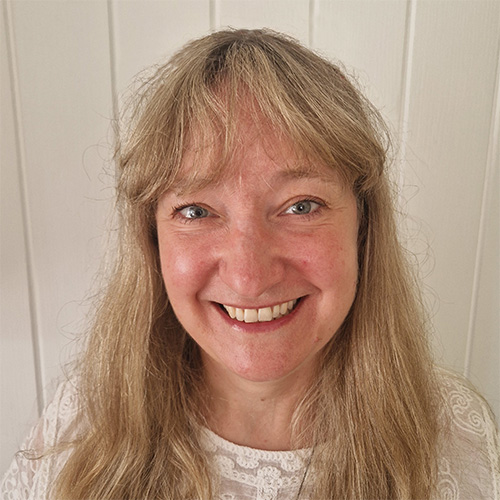Key details
Dr Nerissa Kirkwood
Lecturer in Biosciences
I am a cellular and molecular biologist with an interest in both cancer and neuroscience. I completed my undergraduate degree in Biophysics at the University of East Anglia (1994). This led me on to a DPhil at the University of Sussex investigating potassium currents in mammalian auditory hair cells (1999). During this project, I gained experience in electrophysiological techniques. I completed my first postdoc at the UCL Ear Institute (1999-2002) examining gap junction communication in the inner ear.
A shift to invertebrate studies came during my Daphne Jackson Fellowship at the University of Kent (2008-2010) using Drosophila to examine gap junctions in the auditory system. I returned to UCL to investigate species-specific properties of neurones in the Drosophila ear (2012-2013) and then went back to the University of Sussex to contribute to a project identifying otoprotective compounds (2013-2018).
In recent years, my research has moved into the field of cancer. My current projects involve investigating the link between circadian disruption and increased cancer risk, as well as investigating how the chemotherapy drug cisplatin enters auditory hair cells leading to cell death and hearing loss.
I have taught both undergraduate and postgraduate students at UCL, the University of Sussex, the University of Kent, and the Open University. I completed a PGCHE at the University of Kent (2023), and achieved the status of Fellow of the Higher Education Academy (FHEA, 2023). I joined the School of Science at the University of Greenwich in September 2023 as a Lecturer in Biosciences and am currently module lead for biology for all foundation year students.
Responsibilities within the university
- Lecturer in Biosciences teaching on the following modules:
- Introduction to Biology (Teaching content and Module Lead)
- Medical Biochemistry (Teaching content and Module Lead)
- Foundation Mathematics (Teaching content)
- Fundamentals of Biology and Physiology (Teaching content)
- Physiological Systems and Regulation (Teaching content)
- Pathophysiology of Disease (Teaching content)
- Advanced Topics in Molecular Biology (Teaching content)
- BioMed Online Project (Project Evaluation / Feedback / Moderation)
- Life Sciences Undergraduate Project (Supervision / Evaluation / Feedback)
- Biotechnology Research Project (Supervision / Evaluation / Feedback)
- Metabolism and Disease (Evaluation / Feedback)
Awards
Award for best Post-Doc Poster at the Deaminet 2021 International Conference on Base Editing
Research / Scholarly interests
My research interests include studying the APOBEC3 enzymes, a family of enzymes involved in our innate immune response to viral infection. Mis-regulation of these enzymes has been linked to cancer progression and we are currently studying whether they play a role in the link between circadian disruption and increased cancer risk.
I am also involved in studying the Volume-Regulated Anion Channels (VRACs) that play a key role in cell volume regulation. VRACs are permeable to platinum-based chemotherapy drugs, including cisplatin and carboplatin, and low expression of these channels has been linked to drug resistance and shorter survival times in cancer patients. These channels are also proposed as one possible entry route for cisplatin into auditory hair cells, leading to hair cell death and permanent hearing loss following cancer treatment. Hearing loss is an under-recognised side-effect of chemotherapy, and we are currently investigating whether disruption of these channels could prevent this ototoxicity.
Key funded projects
- 2024 ECR Seed Funding University of Greenwich “Investigating the link between circadian disruption and increased cancer risk”. (£2736.40) – work commencing 2024.
- 2009 Deafness Research UK “A pilot study investigating the suitability of using Drosophila to study gap junctions in the inner ear”. (£8000).
